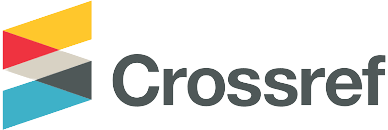Basic Model of Arabic Speaking for Preschool Children (Q-Nutqi)
Abstract
The Arabic language is the most important language in Malaysian education because of its connection with the Quranic language. This study is about the development of a basic model for improving the speaking skills of preschool children (Q-Nutqi). Q stands for Qur’an, Nutqi means to speak. The objectives of this study were to identify the basic needs in Arabic speaking skills of preschool children, then design and develop a model through the implementation of Arabic speaking modules of Quranic communication, finally, evaluate the effectiveness of this model. This study will be conducted using the ADDIE model. The analysis phase will identify the need for a basic model in speaking through the method of interviewing several Islamic preschool teachers in Selangor. Then, the model design phase to find out the learning objectives and determine the learning and teaching methods (L&T) using the Q-Nutqi model. The model development phase involves 12 experts in Arabic, early childhood education, and industry to evaluate the design of the model produced for improvement. The implementation phase of the Q-Nutqi speaking model through training modules for preschool teachers to use the model. The final phase is the evaluation phase to find out the impact and effectiveness of the model on preschool children. Through this study, the research team hopes to be able to develop a model that fits the basic needs of Arabic language learning of preschool children and be able to improve the existing weaknesses in the preschool education system.
References
Abu, A.T., Rashid, R.A.A., & Saleh, S.(2020). Pembinaan modul pengajaran al-Quran (al-Alaq) dengan menggunakan model instruksional ADDIE (The development of al-Quran teaching module (al-Alaq) by using ADDIE instructional model). BITARA International Journal of Civilization Studies and Human Sciences, Vol 3(3).
Ali, A. & Mahamod, Z.(2017). Analisis keperluan terhadap pengguna sasaran modul pendekatan berasaskan bermain bagi pengajaran & pembelajaran kemahiran bahasa kanak-kanak prasekolah. JuKu; Jurnal Kurikulum & Pengajaran Asia Pasifik, Bil 3 (1).
Ali, A. & Mahamod, Z.(2016). Pembangunan dan kebolehgunaan modul berasaskan bermain bagi pembelajaran kemahiran bahasa Melayu kanak-kanak prasekolah. Jurnal Pendidikan Bahasa Melayu(JBPM). Malay Language Education Journal-MyLEJ.
Bacotang, J. & Isa, Z.M.(2016). Aplikasi model ADDIE dalam pembangunan modul awal literasi (Modul A-Lit) untuk kanak-kanak TASKA. 1st International Teacher Education Conference on Teaching Practice (ITECTP), 8-10/10/16, Bangunan E-Learning UPSI.
Ghani, K.A. & Sulaiman, S.N.(2019). Pengajaran kemahiran bertutur bahasa Arab dalam kalangan guru J-Qaf Sekolah Kebangsaan. Online Journal of Islamic Education, Vol 7(1).
Ghani, M.T.A & Wan Daud, W.A.A. (2018). Bahasa Arab untuk pendidikan awal kanak-kanak: Satu kajian analisis keperluan. Jurnal Pendidikan Awal Kanak-kanak Kebangsaan, Vol 7.
Hanifah, U.(2016). Penerapan model PAIKEM dengan menggunakan media permainan bahasa dalam pembelajaran bahasa Arab. Jurnal Ilmu Tarbiyah "At-Tajdid". Vol. 5(2).
Hussin, M. & Marosadee, A.H.(2019). Pembinaan modul pembelajaran ‘Adad dan Ma’dud berpandukan ayat Al-Quran. UNIMAS Journal, Vol 8(1).
Hamidin, N.M.(2016). Persepsi pelajar, guru dan ibu bapa terhadap pembelajaran dan pengajaran bahasa Arab di Sekolah Menengah Kebangsaan Agama (SMKA) di Negeri Selangor.UIAM.Tesis PhD.
Hamidin, N.M.(2016). Smart Iqra' kids Arabic (SmartIqa): Inovasi dalam pendidikan prasekolah. e-Jurnal Penyelidikan &Inovasi (Special Edition).
Hamidin, N.M.(2017). Pembentukan model pendidikan awal bahasa Arab (PABA) untuk PnP prasekolah Malaysia. 4th International Conference on Postgraduate Research (ICPR).
Hamidin, N.M., Rahman, A.A., & Hamdi, I.(2019). The need analysis of Arabic language module for students' preschools.(...).
Md Isa, S.N, Hamidin, N.M., Hamdi, I., & Rahman, A.A.(2016). Refleksi keperluan modul bahasa Arab di peringkat prasekolah. Jurnal GLIT-EJ,KoKUIS.
Mohd Din, A.F., & Seman, M.(2019). Meningkatkan kemahiran bertutur bahasa Arab melalui strategi penguasaan sebutan. International Online Journal of Language,Communication, and Humanities. Vol 2(1): INSANIAH.
Musling, M.N. & Yazid, M.T.N.(2019). Analisis keperluan komunikasi Arab kerjaya untuk staf perpustakaan. International Journal of Humanities, Philosophy and Language, Vol 2(7).
Nisa’, B.F.(2020). Buku percakapan berbasis pesantren “Hiwaruna” sebagai solusi inovatif dalam pembelajaran kalam di pondok pesantren. Prosiding Semnasbama IV UM Jilid 2 Peran Mahasiswa Bahasa Arab dalam Menghadapi Revolusi Industri 4.0.
Rahman, A.A. & Ahmad, N.(2020). Pembinaan model kemahiran bertutur bahasa Arab “Mgg@Tfmodktba@Innov” di Institut Pengajian Tinggi Awam (IPTA) Malaysia. Kesidang Journal, Volume 5 2020: 77-87.
Rahman, A.A, Hamidin, N.M, Md Isa, S.N., & Hamdi, I.(2018). Modul pembelajaran bahasa Arab prasekolah: Suatu analisis keperluan. Jurnal Sultan Alauddin Sulaiman Shah, Vol 5(1).
Ridwan, R., & Awaluddin, A. (2019). Penerapan Metode Bernyanyi dalam meningkatkan penguasaan mufradat dalam pembelajaran bahasa Arab di Raodhatul Athfal. Didaktika: Jurnal Kependidikan, 13(1), 56-67. https://doi.org/10.30863/didaktika.v13i1.252.
Sholikah,M., Qibtiyah, N.M., & Nisa, B.F.(2019). Puzzle Sebagai Alternatif Media Pengajaran Kosa Kata Bahasa Arab Bagi Anak Usia Dini. Inovasi Media Pembelajaran Bahasa, Sastra, dan Budaya Arab, Vol 3 (2019).
Yaacob, M. & Bakar, K.A.(2018). Tinjauan literatur pengajaran kemahiran bertutur bahasa Arab. BITARA International Journal of Civilization Studies and Human Sciences, Vol 1(2).









